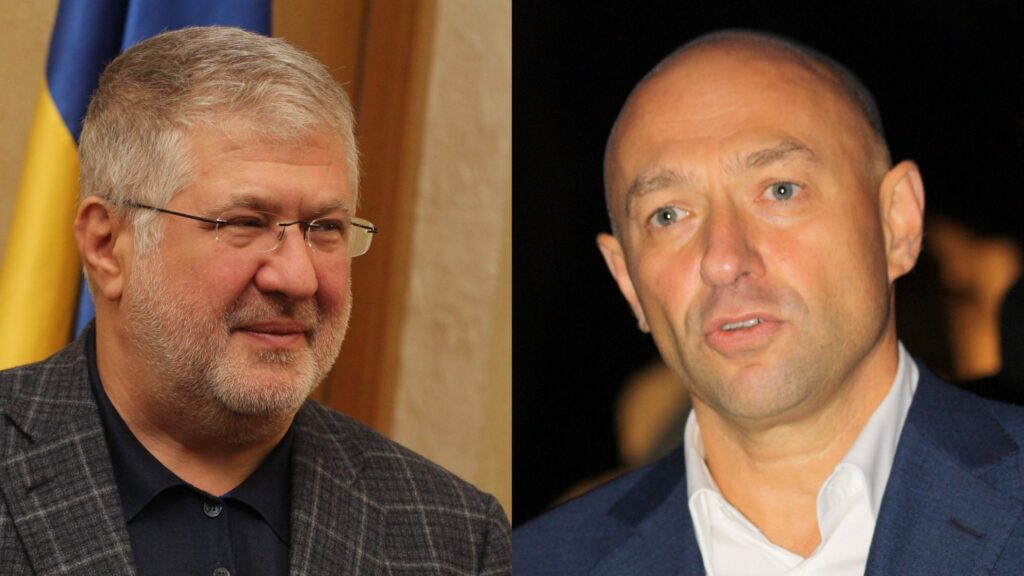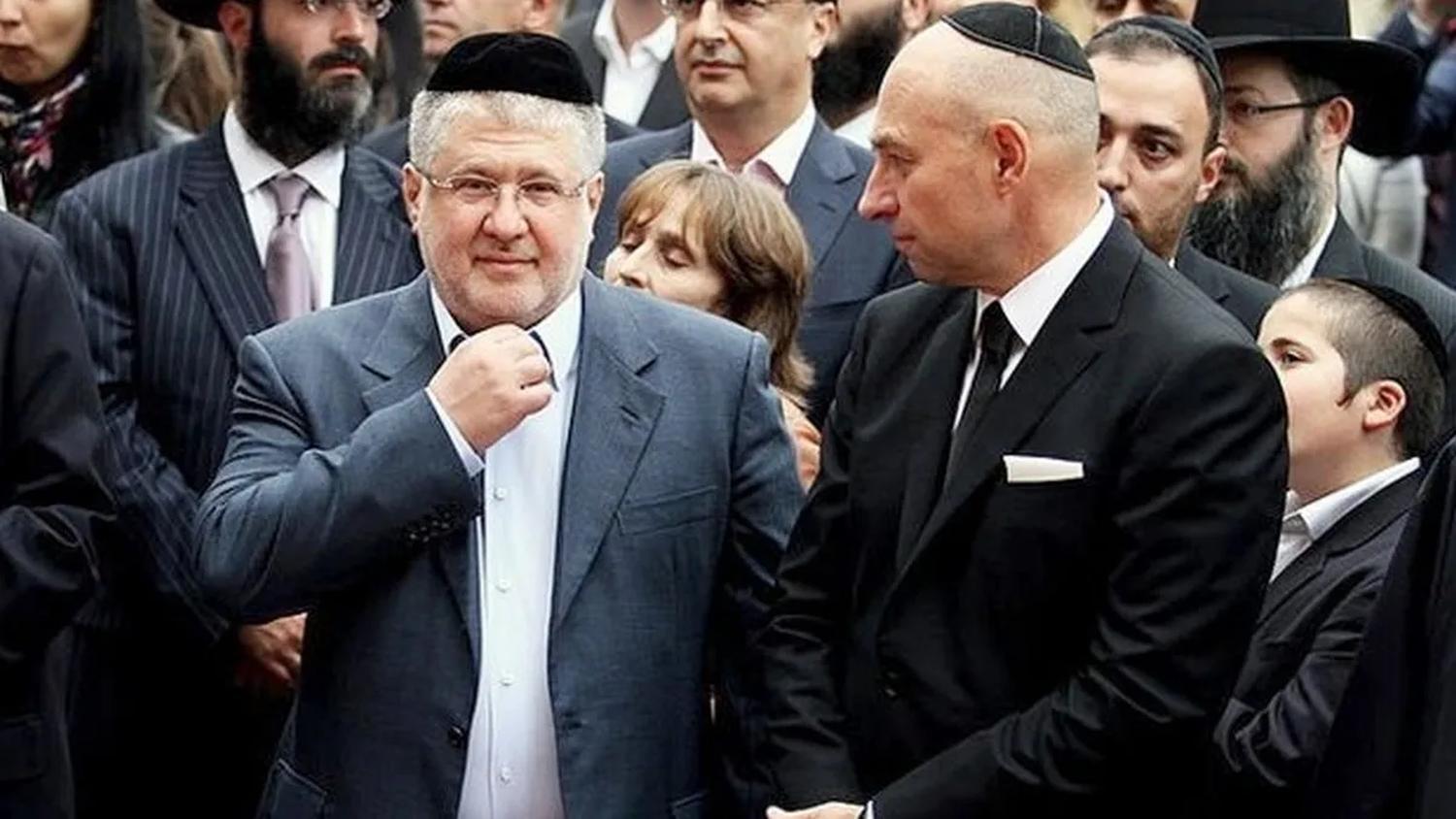London orders PrivatBank oligarchs to pay Ukraine $3bn for largest bank fraud in country’s history


(function(w,q){w[q]=w[q]||[];w[q].push([“_mgc.load”])})(window,”_mgq”);
London’s High Court finalized a ruling requiring oligarch Ihor Kolomoisky and his partner Hennadii Boholiubov to pay PrivatBank over $3 billion in compensation and legal costs.
The 10 November ruling marks the culmination of an eight-year legal battle that began when Ukraine nationalized the country’s largest bank in December 2016 after discovering the oligarchs had siphoned approximately $5.5 billion—roughly 1.5% of Ukraine’s 2014 GDP—through fraudulent loans to shell companies.
Ukraine spent billions recapitalizing the institution to prevent systemic collapse, a burden that fell on taxpayers while the oligarchs’ assets remained largely intact abroad.
The judgment represents the largest banking fraud recovery in Ukrainian banking history, though enforcement remains uncertain given the complexity of the corporate structures and multiple jurisdictions involved.
The fraud that nearly collapsed Ukraine’s banking system
Between 2010 and 2014, Kolomoisky and Boholiubov issued hundreds of loans to over 50 shell companies they secretly controlled, according to Justice Trower’s 30 July ruling. These weren’t real businesses—most had no operations, employees, or purpose except to receive money.
Those fraudulent loans were immediately transferred to corporate defendants in the UK and British Virgin Islands under the pretense of “prepayments” for goods that were never delivered. The court found the payments were never returned.
Cyprus served as the key pipeline, with PrivatBank’s branch facilitating over $2.3 billion in foreign currency transfers. When loans came due, new fake loans were issued to repay old ones—creating an illusion of solvency while money flowed to accounts controlled by the oligarchs.
A 2017 audit by Kroll confirmed PrivatBank engaged in massive fraud before nationalization, with losses reaching $5.5 billion.
Why PrivatBank sued in London instead of Ukraine
Ukraine’s Minister of Finance Serhii Marchenko welcomed the ruling as “an important step towards achieving justice,” noting that it demonstrates that “Ukraine can successfully defend its position and interests on the international stage.”
However, the London ruling also indicates that Ukraine was powerless to achieve this success at home.
PrivatBank filed its lawsuit in London’s High Court in 2017, arguing Ukrainian courts couldn’t deliver justice.
The bank’s legal team told the court that Kolomoisky’s “power and influence” made fair proceedings impossible in Ukraine.
The court found senior PrivatBank employees facilitated the scheme under direct orders from Kolomoisky and Boholiubov. Compliance failures weren’t accidental—they were deliberate, driven by intimidation. Even National Bank of Ukraine officials faced threats when they investigated.
Justice Trower noted that Kolomoisky threatened NBU deputy governor Kateryna Rozhkova, telling her he was “a hungry tiger in a cage” with “very long arms” who could reach her anywhere.
Failed defenses and destroyed evidence
Kolomoisky and Boholiubov deployed multiple legal strategies that the court rejected.
Boholiubov claimed he acted independently from his longtime partner and suggested bank management orchestrated the scheme without his knowledge. The court found this implausible, noting he voted to reappoint the same management board after devastating audit reports exposed massive fraud.
Kolomoisky attempted a “free-choice extinction” defense, arguing PrivatBank’s new management had voluntarily accepted the fraudulent transactions when signing 2016 financial statements. Justice Trower noted this argument was never properly pleaded and would have been rejected anyway.
Both oligarchs destroyed documents that could have served as evidence, withdrew their witness statements, and refused to testify under oath—leading the court to draw adverse inferences from their silence.
Collection challenges ahead
PrivatBank stated the oligarchs must pay by 24 November 2025, with interest accruing afterward if payment isn’t made. The bank plans to pursue forced collection through the oligarchs’ assets if they don’t pay voluntarily.
But the court document notes that applications for appeal permission must be filed by 24 November, meaning no concrete final payment date can be established yet.
The oligarchs’ assets have been under a worldwide freezing order since December 2017, when an English court issued an order for the worldwide arrest of their assets.
In February 2025, Ukraine’s National Security and Defense Council imposed sanctions on both men, blocking their Ukrainian assets.
The BBC reported that due to Ukraine’s sanctions, any recovered funds will be held in a client account at law firm Hogan Lovells in the UK until legal proceedings conclude. Given the enormous sum, complex corporate structures, and multiple jurisdictions involved, enforcement will likely be “prolonged,” the court acknowledged.
Where the oligarchs are now
Kolomoisky has been in Ukrainian custody since September 2023 on charges of organizing contract killings and fraud. The BBC reported that a Kyiv court extended his detention until 14 December 2025 on 16 October.
Boholiubov left Ukraine in June 2024 using what investigators claim was an invalid passport. Journalists later discovered he’s living in Vienna.
The London judgment came just over three months after Justice Trower’s 30 July ruling that found the pair orchestrated “a brazen fraud that nearly collapsed Ukraine’s entire banking system.”
(function(w,q){w[q]=w[q]||[];w[q].push([“_mgc.load”])})(window,”_mgq”);
Source link





